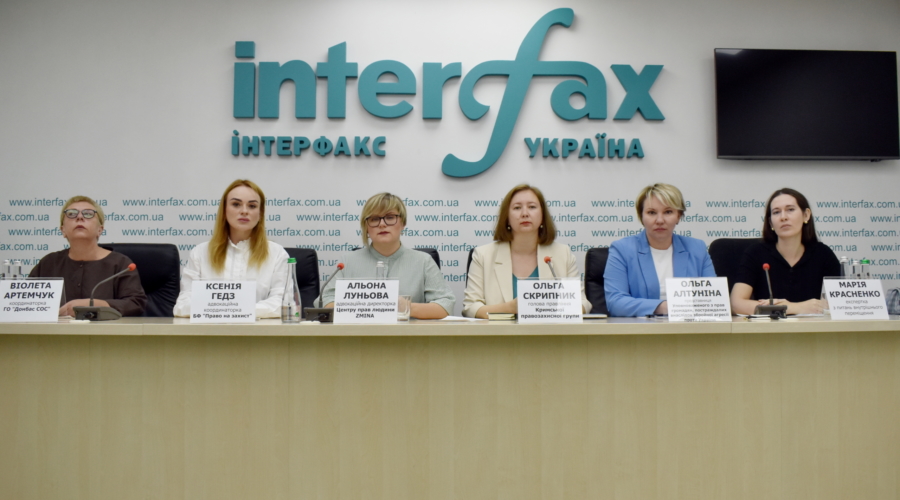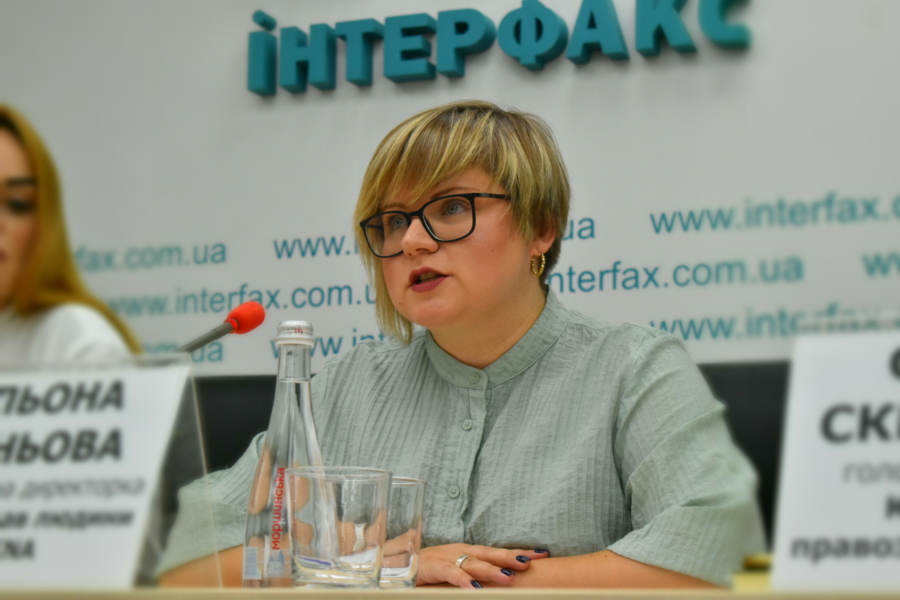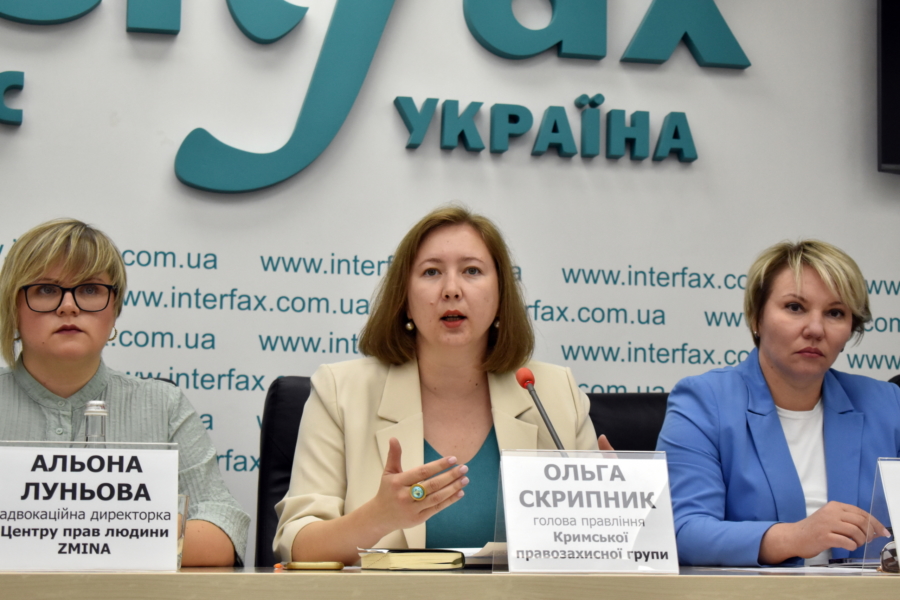The Ministry of Reintegration can be liquidated: human rights defenders see this as a risk for the protection of the population affected by the war
Thousands of Ukrainians affected by the war may be left without comprehensive state support. This may happen as a result of the possible liquidation of the Ministry of Reintegration, information about which began to appear in early September. There is a risk that the issues of reintegration and protection of the rights of the affected population will not be a priority of the new ministry to which these functions will be transferred.

This was announced on September 18 by representatives of the Coalition of organizations dealing with issues of protection of the rights of war victims during a briefing in Kyiv and presented the relevant position.
Human rights activists said that the prospect of liquidating the Ministry of Reintegration, or more precisely, the government’s plans to merge the Ministry of Reintegration of the Temporarily Occupied Territories of Ukraine with the Ministry of Community Development, Territories and Infrastructure of Ukraine, became known at the beginning of September. At least part of the powers of the Ministry of Reintegration regarding temporarily occupied territories and displaced persons will be transferred to the Ministry of Regions. In such a decision, human rights defenders see risks for the support of Ukrainians who suffered from the war – the redistribution of the functions of the Ministry of Reintegration may lead to the disappearance of the topic of protection of war victims, in particular residents of temporarily occupied territories, and the development of a comprehensive reintegration policy from the state agenda.
Alena Lunova, Advocacy Director of the Human Rights Centre ZMINA, said that a separate ministry that formulates policies for displaced persons and residents of the occupied territories was created in 2016, and for the affected population all these years it was important to understand that this institution can protect their rights.
“In the eleventh year of the war, the liquidation of such a ministry without proper explanation of the reasons and plans can have a bad effect on people’s perception and their expectations. What will be the policy of returning territories and people, and does the state plan to de-occupy and reintegrate territories? And the state’s silence on this matter is a bad signal for Ukrainians in the country and abroad, for international partners,” Lunova believes.

The Coordinator of “Donbas SOS” Violeta Artemchuk said that the affected people have various requests to human rights defenders and the state: from social payments to ways of leaving their relatives from the occupation. And if the functions of the Ministry of Reintegration are transferred to other structures, people will be forced to turn to various ministries for help.
Another category of people, the protection of whose rights will also be at risk, are civilians and military personnel who are prisoners and illegally detained in the occupied territories or in the Russian Federation. They are also taken care of by the Ministry of Reintegration. Olha Skrypnyk, Head of the Board of the Crimean Human Rights Group, noted that the Ministry of Regions, to which the functions of the Ministry of Reintegration are planned to be transferred, will primarily deal with controlled territories, where regional policy can currently be developed.
“Therefore, it is not clear to us who will take care of people in the occupied territories or people whom Russia imprisoned or deported,” says Skrypnyk.
In addition, the National Information Bureau (NIB) operates on the basis of the Ministry of Reintegration, which collects data on the dead, missing, prisoners, and deportees. So, according to Olha Skrypnyk, the question of how the NIB will continue to function is currently also pending.
Evacuation of people and assistance to displaced persons is another function of the Ministry of Reintegration. As Ksenia Gedz, Advocacy Coordinator of Right to Protection, notes, the state should also communicate, in particular with international partners, who will be responsible for humanitarian assistance to displaced persons, especially in the autumn and winter period, when people’s requests for support increase every day.

“It is very strange to liquidate the body responsible for the formation and implementation of the state policy of reintegration. We understand that these issues will be dealt with in one way or another by other ministries, but it is unlikely to be focused on the needs of the affected people. We may lose an institution that has worked out state policy for years. And all this may end up on pause,” noted the Representative of the Commissioner for the Rights of Citizens who are Victims of Armed Aggression against Ukraine, Olha Altunina.
Civil society organizations call on the government to preserve the functions of the Ministry of Reintegration, for example, through the transformation of the Ministry of Reintegration into the Ministry of Unity or through the preservation of the position of the Deputy Prime Minister for the Reintegration of the Temporarily Occupied Territories of Ukraine with relevant deputies in each ministry.
The full position of human rights defenders regarding the probable liquidation of the Ministry of Reintegration can be found here.
Video from the event at the link.
For reference. The Coalition of organizations dealing with the protection of the rights of victims of armed aggression against Ukraine includes the Human Rights Centre ZMINA, “Donbas SOS”, “Crimea SOS”, “Right to Defense”, “East SOS”, “Civil Holding “GROUP OF INFLUENCE”, “Stabilization Support Services”, Crimean Human Rights Group.
Photo in the material – Interfax-Ukraine
If you have found a spelling error, please, notify us by selecting that text and pressing Ctrl+Enter.















